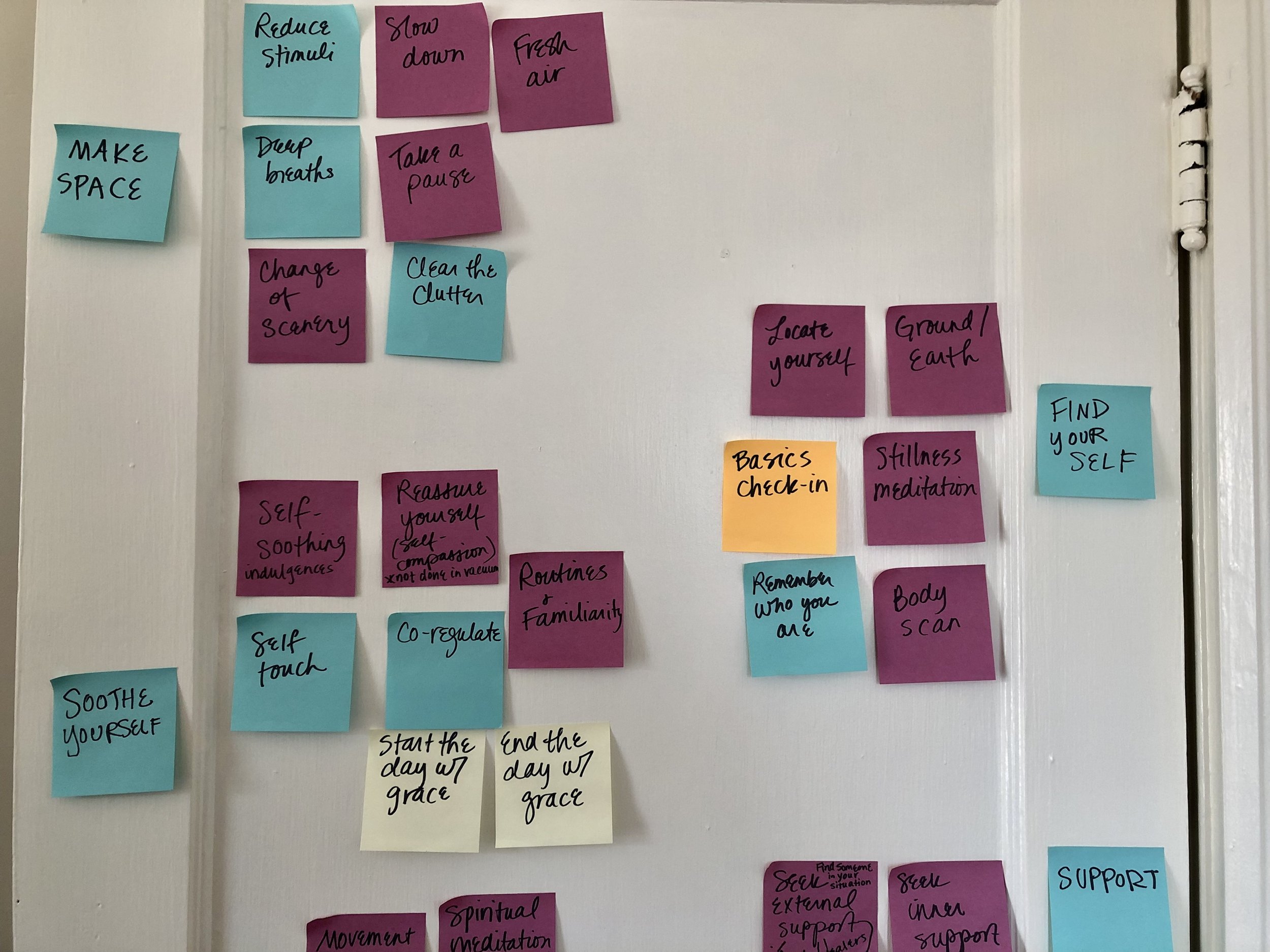When to Take a Break From Self-Care Techniques
Self-care techniques featured in my upcoming book. Photo by Quinn Corte, 2023.
Listen to the audio version below:
I’m a firm believer in having a treasure chest full of self-care tools. The ability to know when you need support and know how to give yourself support will serve you your entire life. However, there is a shadow side to using self-care techniques. Sometimes we use them to escape, shame, isolate, or put further pressure on ourselves. We might also use techniques that are habitual or performative and don’t actually serve us.
The intention behind using a technique makes all the difference. Offering support is so much more loving than trying to fix yourself.
Let's say I'm having pain and considering taking Advil. If I'm taking medication to eliminate the pain so I can hurry up and get on with my day, I'm not being a great ally to my body. If I'm taking medication to offer compassionate relief to my sore muscles, then I'm being a more supportive ally. It's a subtle but powerful distinction.
Here are my observations about when trying techniques can be helpful, and when it’s time to step away from the bag of tricks and just be human. As always, I invite you to throw out what doesn't resonate and pay attention to what does.
Using self-care techniques can be helpful when:
Your intention is to support yourself instead of fix yourself
You desire or need a specific technique
Your body is showing signs of stress, but you’re trying to ignore it
You’re feeling numb or disconnected from your body and others
You’re about to do (or just did) something hard or scary
You know a technique will help relieve or soothe your nervous system during a hard time
You're pairing techniques with external support from friends, therapists, healers, loved ones, and the earth
You’re using techniques to discharge, express, or explore something hard
You’re listening to what you need and responding with an aligned technique
You’re tuned in to your body’s response, and you notice the technique is helping with a desired shift
You’re familiar with your pattern and know what helps
You feel good practicing the technique together in community
Your technique feels supportive as you're sitting with major discomfort
It might be time to take a break from self-care techniques when:
Your intention is to fix yourself instead of support yourself
You’re using techniques that you think should help instead of tuning into what actually helps
You’re using them to eliminate the normal discomfort of being human
You’re persisting with things that don’t feel good because they’ve helped you in the past
You’re trying all the things with a bit of desperation, instead of allowing yourself to feel how you feel
You feel frustrated that your techniques aren't “working”
You’re deeply alone in your struggle and trying to cope by yourself
Your techniques are making you turn against yourself or your body
Your self-care is becoming an added burden on your to-do list when you’re overwhelmed
You’re putting pressure on yourself to be “better” at self-care
Your self-care has become performative (“look at how well I care for myself!”)
You feel that failing to do enough self-care or not doing it in the “right” way has become a source of shame or guilt
You notice that you don't like yourself during the technique or it feels a little punishing
You're wrapped up in techniques in hopes that you'll get to a mythical finish line
You're using techniques to avoid asking for help
There are many times when we get caught up in "shoulds" and get obsessed with fixing ourselves. We've all been there. When I get wound up in a self-care vortex, I find it's best to put away all the tools and just go outside, go to sleep, or simply stop thinking about myself. Divert my attention. Make something. See people. Love myself where I am. Let go. And just live.
You might also like:


